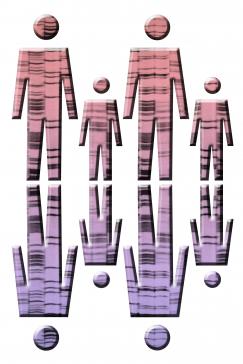We live in an era of ‘identity’. Gender, racial, ethnic, sexual, (dis)ability, national, regional and religious identities define our beliefs, experiences and agency. But how have notions of identity been made and remade over time? And how have these notions been materially underpinned, within and between disciplines and practices such diverse as medical science and provenance research?
This reading group took an interdisciplinary approach to the question of how researchers have participated in the construction of identities in the 19th, 20th and 21st centuries. The readings emphasised the importance of practices–that is, the active making of identities–as well as the roles of material artefacts, such as specimens or archival documents. They discussed how self-ascribed or imposed identities have variously shaped the definition and study of disease. They examined how historical narratives have defined the meanings and politics of cultural heritage preserved in archives.
The readings were divided into three themes. The first comprised the documentary practices of measuring, marking, classifying and sorting, through devices such as passports, biomedical tests and self-tracking devices. The second focused on narrative-making practices, in, for example, doctors surgeries, private diaries, and the psy disciplines. The third overlapped with these and focused on the construction of human organisation and belonging.
Using these readings, the group considered how identity categories have been made and remade, validated and discarded over the last two centuries. We kept power at the forefront, exploring archives, museums, hospitals, colonial spaces and borders. We discussed how identities have been used to control and oppress, as well as to assert self-determination. And we examined how identities function–in sciences, within the state, and in historical research itself.
The group was the result of a collaboration between Emma Hagström Molin (Uppsala University), Lara Keuck (Max Planck Institute for the History of Science, and University of Bielefeld), and Jenny Bangham (Queen Mary University of London).

